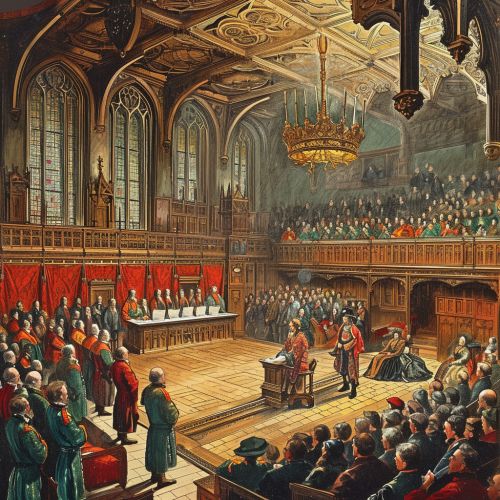Interregnum (England)
Background
The Interregnum was a period in the history of England between the execution of Charles I in January 1649 and the arrival of his son Charles II in London in May 1660 which marked the start of the Restoration. The Interregnum was a unique period of British history in terms of political, constitutional, and social change.


Political Changes
The Interregnum saw a series of political experiments as the country tried to redefine its governance. The monarchy was abolished and England was declared a Commonwealth in 1649. This was followed by the establishment of the Protectorate under the leadership of Oliver Cromwell in 1653, which was effectively a military dictatorship.
Constitutional Changes
The Interregnum was also a time of significant constitutional change. The Rump Parliament, the remnant of the Long Parliament after Pride's Purge, was the first to govern during this period. It was followed by the Barebone's Parliament, a nominated assembly, and then the First Protectorate Parliament. The Instrument of Government, the first written constitution in England's history, was adopted during this period.
Social Changes
During the Interregnum, there were significant social changes. There was a rise in radical religious groups, such as the Quakers and the Diggers, who challenged the established church and social order. The period also saw the growth of the Levellers, a political movement that advocated for popular sovereignty, extended suffrage, equality before the law, and religious tolerance.
Legacy
The Interregnum left a lasting legacy on England. The period saw the first attempts at establishing a constitutional government and the questioning of the divine right of kings. It also led to the development of political parties and the concept of a loyal opposition. Despite the restoration of the monarchy in 1660, the ideas and debates that arose during the Interregnum continued to influence English and later British politics.
